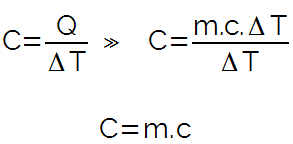Spanish dictator born in El Ferrol, who ruled his country for nearly four decades and became known as Generalissimo Francisco Franco. From a military family, he attended the Toledo Infantry Academy and served in Morocco (1912-1929), where he organized the Spanish Foreign Legion. For his role in the Rif campaigns, he was promoted to general (1925). He took over the Toledo school and, after the proclamation of the republic, was appointed governor of the Balearic Islands. He returned to Spain (1933) and led the repression of miners' strikes in Asturias. The following year he was nominated for the Chief of Staff of the Army, but was fired after the Republican victory in the elections (1936) and sent to the Canary Islands.
In July of the same year he secretly returned to Morocco and joined the rebellion led by the general Sanjurjo and with his death, he assumed the leadership of the movement that would unleash a bloody war civil. Three months later, the Burgos junta named him generalissimo and head of the national government and, in January (1938), head of state. Supported by the nationalists, fascist Italy and Hitler's Germany, he signed the anti-Komintern pact and soon after proclaimed Spain's neutrality in World War II (1939). He took advantage of early German victories to conquer Tangier, but refused to allow Nazi troops to cross Spanish soil in towards Gibraltar, but participated in the campaign in the Soviet Union alongside the Nazi troops (1942), with the Blue Division, of volunteers Francoists.
After the end of World War II he sought rapprochement with the United States and England, although he continued of diplomatic ties with the French and continued under opposition at the United Nations (UN). Supported by the United States, he joined the UN (1955) and re-established the monarchy, proclaiming himself protector-regent and naming (1969) Prince Juan Carlos de Bourbon as his successor. He created the regime that became known as Francoism, was a generalissimo in the Army, protector of the Catholic Church and head of the Falange, then the only political party in Spain. His government laid the foundations of the modern Spanish economy, but delayed the country's political development and its integration into Europe. With his death, which took place in Madrid, and the accession of King Juan Carlos to the throne, Spain returned to being a parliamentary democracy.
Source: http://www.dec.ufcg.edu.br/biografias/
Order F - Biography - Brazil School
Source: Brazil School - https://brasilescola.uol.com.br/biografia/francisco-paulino-hermenegildo.htm


